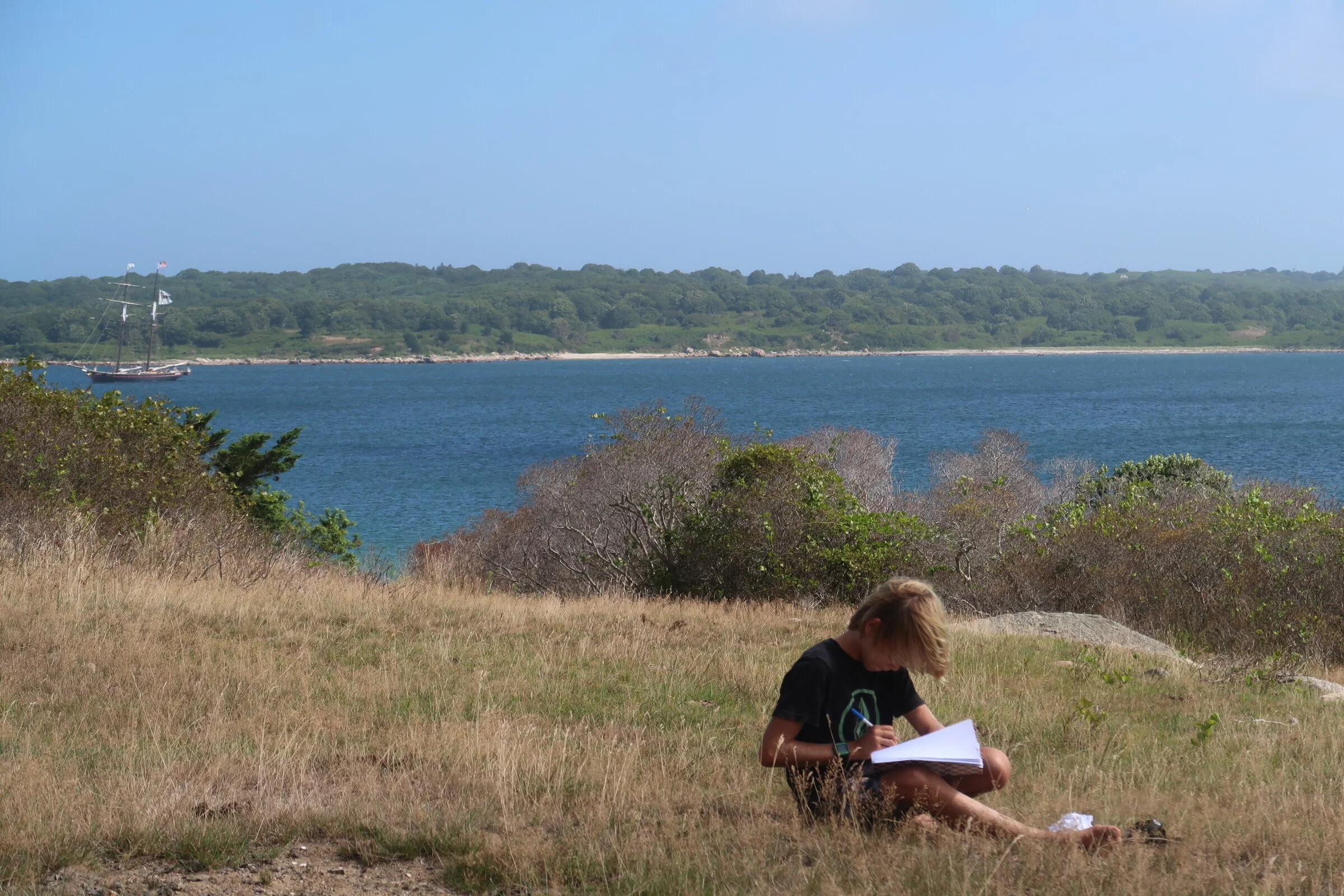Outdoor Education
A Game Changer in the Midst of a Pandemic
A student creates stories while ashore in Tarpaulin Cove as Shenandoah sits in the distance.
By Bella DiStefano, FUEL Staff
Instagram, Twitter, Facebook. Repeat. Repeat. Repeat. Throw in some Snapchat, because heaven forbid you to lose your streak with your best friend. Hey, when’s the last time you talked to that ‘best friend,’ anyway?
Nowadays, we spend so much time on our phones, computers, tablets, and whatever else Apple has thrown out at us recently that we haven’t even taken the time to stop and think about what it’s doing to us. We scroll and scroll and scroll, click play on countless videos, and as soon as we put our phones down, we pick it up again and go back to the same app we were on just two minutes prior.
We scroll while we eat, while we work, and while we should be sleeping. And now, with schools operating as distance learning programs, we sit in front of a computer for just about the entire day. We are so connected to our technology that we don’t even allow ourselves to stop and think. Our minds have been on pause ever since we delicately unwrapped our shiny new tech.
But what if we weren’t like this? What if, even for just a day, we ditched our phones, and we went outside? Do you even know what kind of parks and trails are near your house? Even in the biggest of cities, there is somewhere to escape to and explore.
There is so much that our minds are capable of if we listen to them. One of the many benefits of outdoor education is it creates a space to think, listen, and learn without the distraction of technology. Learners who would usually struggle to focus in a classroom become interested and invested in the taught subjects. Hands-on experiential learning allows students to remember lessons for life, not just until the next exam. Students form meaningful connections with one another. I hardly think that any student is making new friends over Zoom.
The advantages of outdoor education are undeniable. Especially in a year filled with uncertainties (how many times have you heard that one?), outdoor education has become a way for us to be together again safely. And no, this isn’t me saying “Phone bad! Outside good,” because there are many benefits from technology, especially during a pandemic, but as Socrates would tell you, “everything in moderation. Nothing in excess.”
An additional layer to the benefits of outdoor education is learning at sea, specifically. The ocean is hugely beneficial in so many aspects of life. The guest from FUEL’s virtual event last summer, author Wallace J. Nichols, can speak more on this than I can. Still, in his book, Blue Mind: The surprising science that shows how being near, in, on, or underwater can make you happier, healthier, more connected, and better at what you do, he uses real data to prove that being around water does relate to our mental wellbeing.
Aboard a ship, your crew is your family. If one person fails, the whole team fails. That is why this is such a great place to learn. Your crew won’t let you fail. You won’t slip through the cracks, confused about the lesson like you would be in a conventional classroom. Aboard a ship, your team picks you back up.
Operating Shenandoah allows us to create an environment for students of all abilities to learn, grow, and feel welcome. The ocean provides us with so many possible lessons, and the daily tasks that come with living on a ship will bring students together as friends, forming lifelong connections. Our goal is to leave each student with a deeper relationship with themselves, their education, surroundings, and others.

